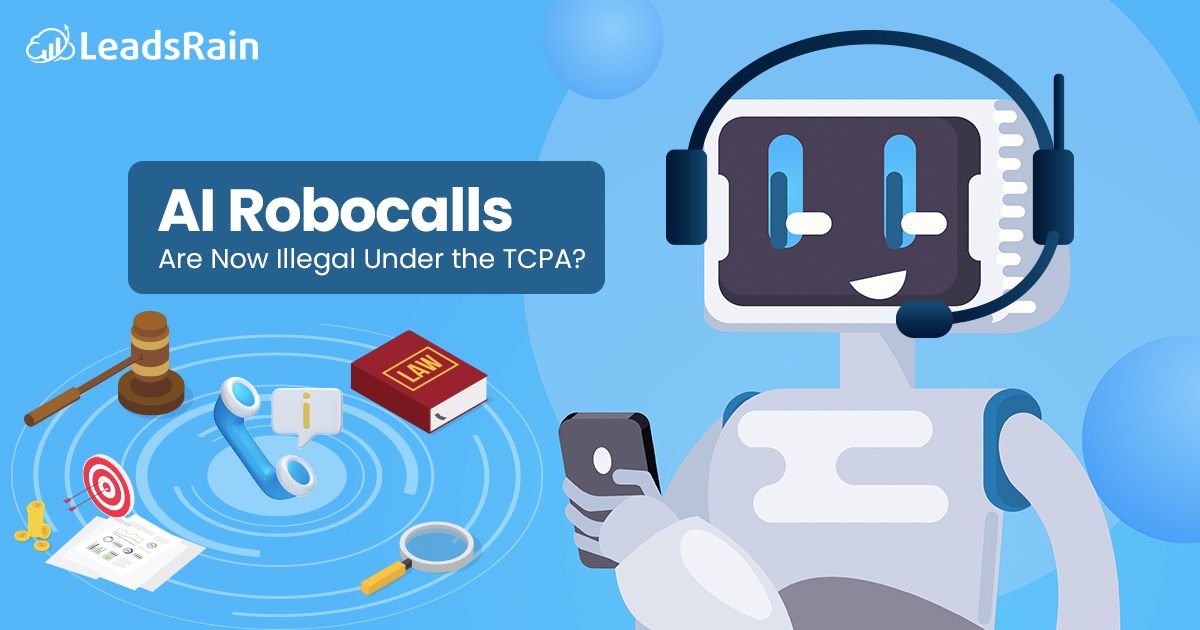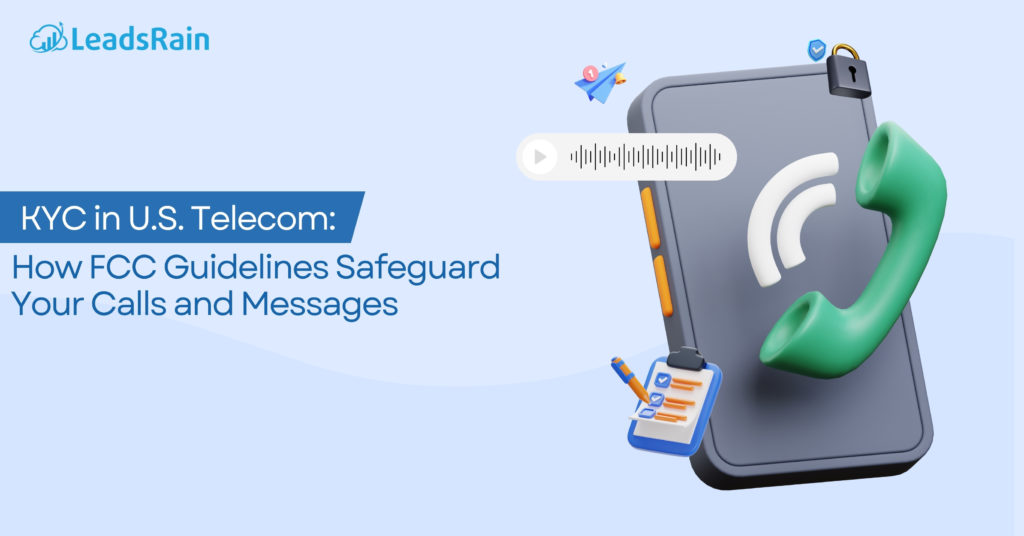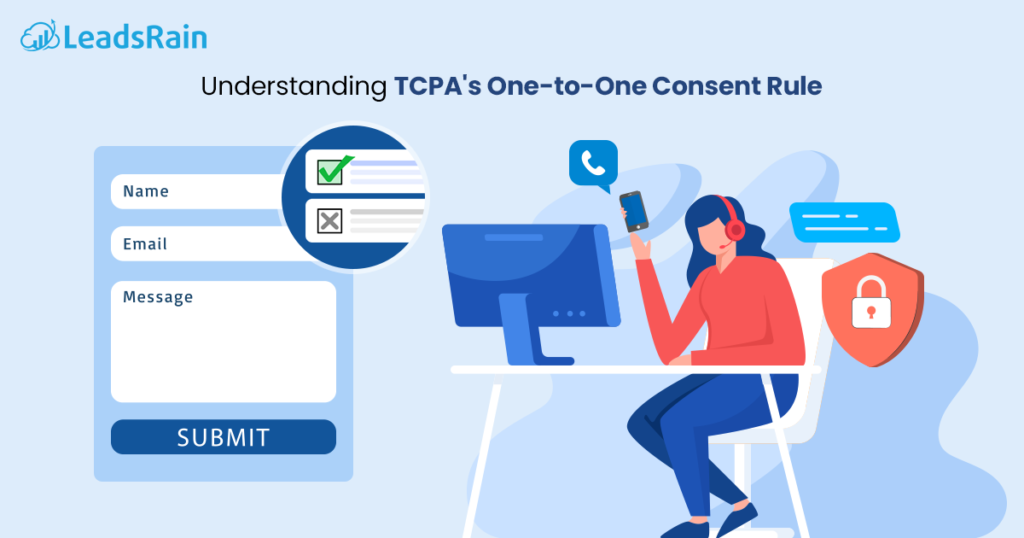AI Robocalls: A major worry for both businesses and consumers. Despite the aggravation and annoyance these calls generate, numerous individuals have questions as to whether AI robocalls are illegal. This blog piece will explain the US legal picture around AI robocalls, including the rules and issues that are being addressed about this burgeoning topic.
What are AI Robocalls?
Robocalls are automated phone calls often associated with scams that can be a nuisance to individuals and businesses alike. Artificial intelligence (AI) robocalls include robotic phone calls that replicate human speech via machine learning and AI.
AI robocalls can interpret listeners’ communication responses and modify their conversation in real time, making the experience less explicitly artificial and more engaging.
US Government Regulations on Robocalls
AI robocalls are surrounded by a complicated legal environment. With a plethora of regulations aimed at protecting customers from telemarketers, Which US laws pertain to AI robocalls, let’s find out.
1. Telephone Consumer Protection Act (TCPA)
The TCPA, which is enforced by the FCC, restricts the majority of auto-dialed calls, text messages, and pre-recorded voice calls from being uploaded to mobile phones without the recipient’s express prior approval.
2. Telephone Robocall Abuse Criminal Enforcement and Deterrence Act (TRACED)
The Traced Act, which was enacted in 2019, mandates carriers make use of call authentication technology to avert caller ID spoofing. Therefore, raises the penalty for robocall violations, and extends the time frame of limitations for enforcement proceedings.
3. Federal Communications Commission (FCC)
FCC Regulations are updated often to cope with new robocall challenges while strengthening consumer safeguards. Regulations are often updated to cope with new robocall challenges while strengthening consumer safeguards. These laws include prohibitions on fraudulently caller ID, call authentication, and the enforcement of laws against unsolicited robocalls.
4. National- Do Not Call the Registry
The DNC Registry is managed by the Federal Trade Commission (FTC). Customers can register their phone numbers to the DNC registry list to opt out of getting telemarketing calls.
What’s the new update on AI Robocalls?
As quoted by Jessica Rosenworcel, chairwoman of the FCC:
“Bad actors are using AI-generated voices in unsolicited robocalls to extort vulnerable family members, imitate celebrities, and misinform voters. We’re putting the fraudsters behind these robocalls on notice.”
Telemarketers are usually forbidden by US consumer protection laws from using automated dialers, fake or prerecorded voice messages, or both when calling mobile phones. They are also prohibited from calling landlines without the call recipient’s prior written agreement.
Following an update by the US Federal Communications Commission (FCC), the number of these calls has risen in recent years and may mislead customers by impersonating different voices.
Robocallers are reputed to be involved in political disinformation commitments in addition to making aggressive sales pitches for goods and services. An actual metaphor of this could be The announcement comes as New Hampshire authorities are advancing their investigation into AI-generated robocalls that mimicked President Joe Biden’s voice to dissuade voters during the state’s first-ever primary month (January 2024).
Are AI robocalls legal or illegal?
Shortly after a federal agency’s unanimous judgment, calls made using voices created by artificial intelligence (AI) are now illegal in the US.
According to a press release issued by the Federal Communications Commission (FCC), the Telephone Consumer Protection Act (TCPA) will label calls made using voices created via artificial intelligence (AI) as “Artificial,”. This swiftly deems robocalls that employ voice cloning technologies and target individuals unethical.
In any case, robocalls are illegal as they are frauds/ scams, but simply the fact that they employ artificial intelligence (AI) to construct their voices makes them illegal.
What are legal actions against violators?
According to the FCC, violators could get slammed with heavy penalties of up to $23,000 (€21,351) for each call. Violations of the TCPA are subject to stiff civil penalties.
Additionally, call receivers are legally entitled to file a lawsuit and get damages of up to $1,500 for each unwanted call.
The point of matter; In the past, the agency has employed consumer law to crack down on robocalls that tamper with elections. It even fined two conservative hoaxers $5 million (€4.6 million) for misleadingly advising residents of especially Black areas that voting by mail could increase their risk of being arrested, debts collected from them, and having to get forced vaccinations.
What are some Alternatives to AI robocalls?
It’s imperative to figure out a balance between customer care and efficiency. Here are a few additional alternatives you can adopt to keep in contact with your clients while avoiding morality and regulatory dilemmas.
Sales dialers.
LeadsRain Sales dialer systems reduce the inconvenience of unsolicited calls by automatically dialing a list of phone numbers and connecting answered calls to live agents.
Email automation.
Automated email campaigns deliver non-intrusive opportunities for contact by gently offering personalized communications to customers throughout their day.
Natural language processing.
NLP technology analyzes and interprets consumer inquiries to assist with more sophisticated and human-like interactions.
Interactive voice response.
IVR systems support callers to communicate with an automated voice system via speech or keyboard inputs. Widely deployed for customer support; often less intrusive and more efficient than AI robocalls.
Live-chat support.
By implementing live chat help on their websites, companies can engage with clients in real time, addressing queries and concerns without requiring intrusive phone calls.
How do AI robocalls affect consumers and businesses?
Artificial intelligence (AI) robocalls undermine consumers’ experiences, provide difficulties for companies, and contradict rules and regulations.
Consumers are frequently receiving an abundance of unsolicited robocalls, which frustrates and distracts them throughout the entire day. Because these robocalls commonly target individuals with unauthorized solicitations, they can infringe on their privacy. Certain robocalls engage in fraudulent activities that cause financial loss or misuse of identities for their consumers.
When it comes to businesses, then The good name of a company may suffer if scammers deploy AI robocalls that purport to be from a reputable company. Regulations designed to reduce robocall overuse may come with enormous penalties for businesses to adhere to. The proliferation of robocalls has made consumers skeptical of taking calls, which has minimized customer engagement and made it a challenge for many businesses to contact them.
Conclusion
Thus, the legality of AI Robocalls is clearly stated. In the end, the US laws and regulations can effectively work in conjunction with some other ways to stop AI robocalls, such as sophisticated technology and outbound dialer technology, which enhance the integrity of communication channels and shield consumers and companies from fraud and harassment.




